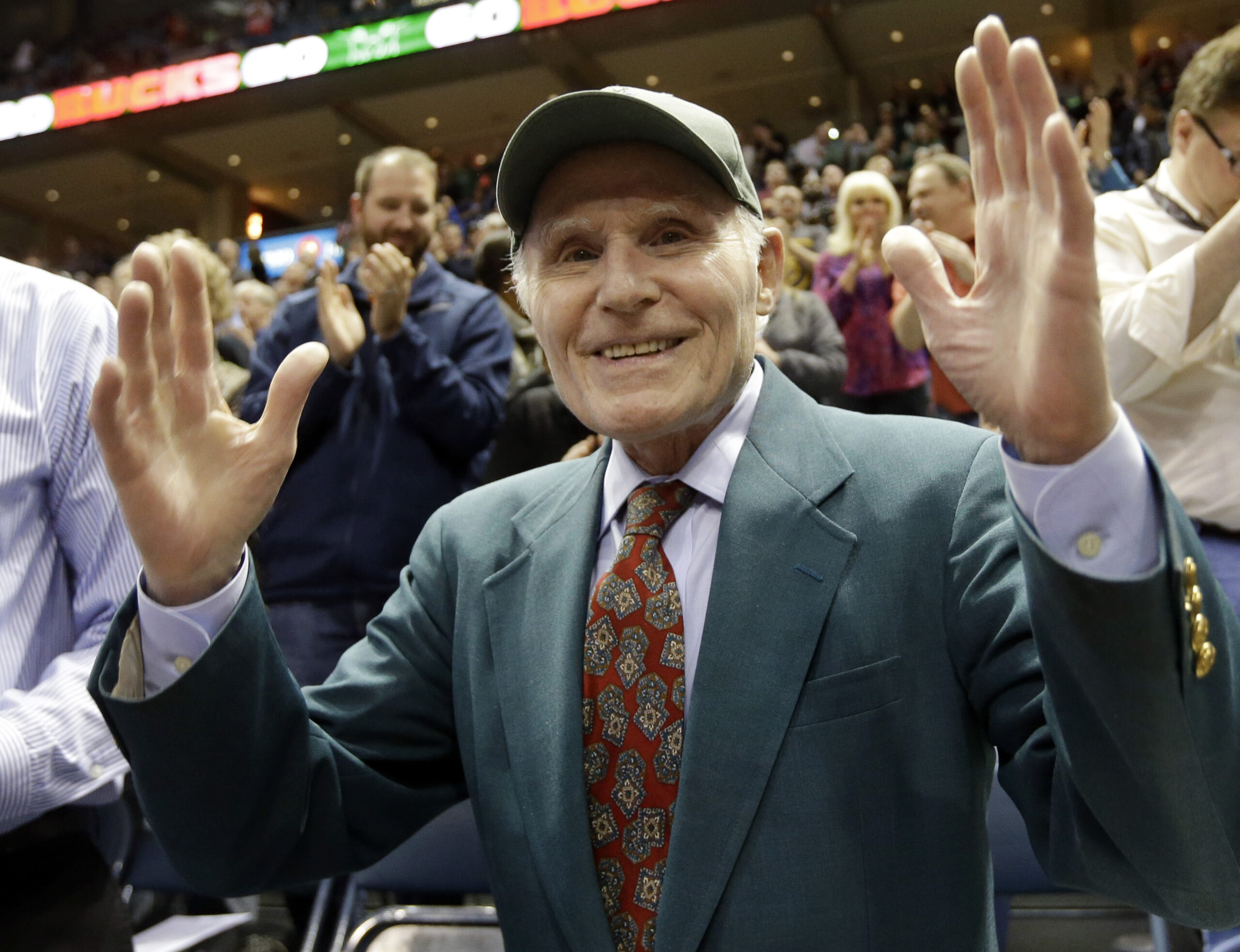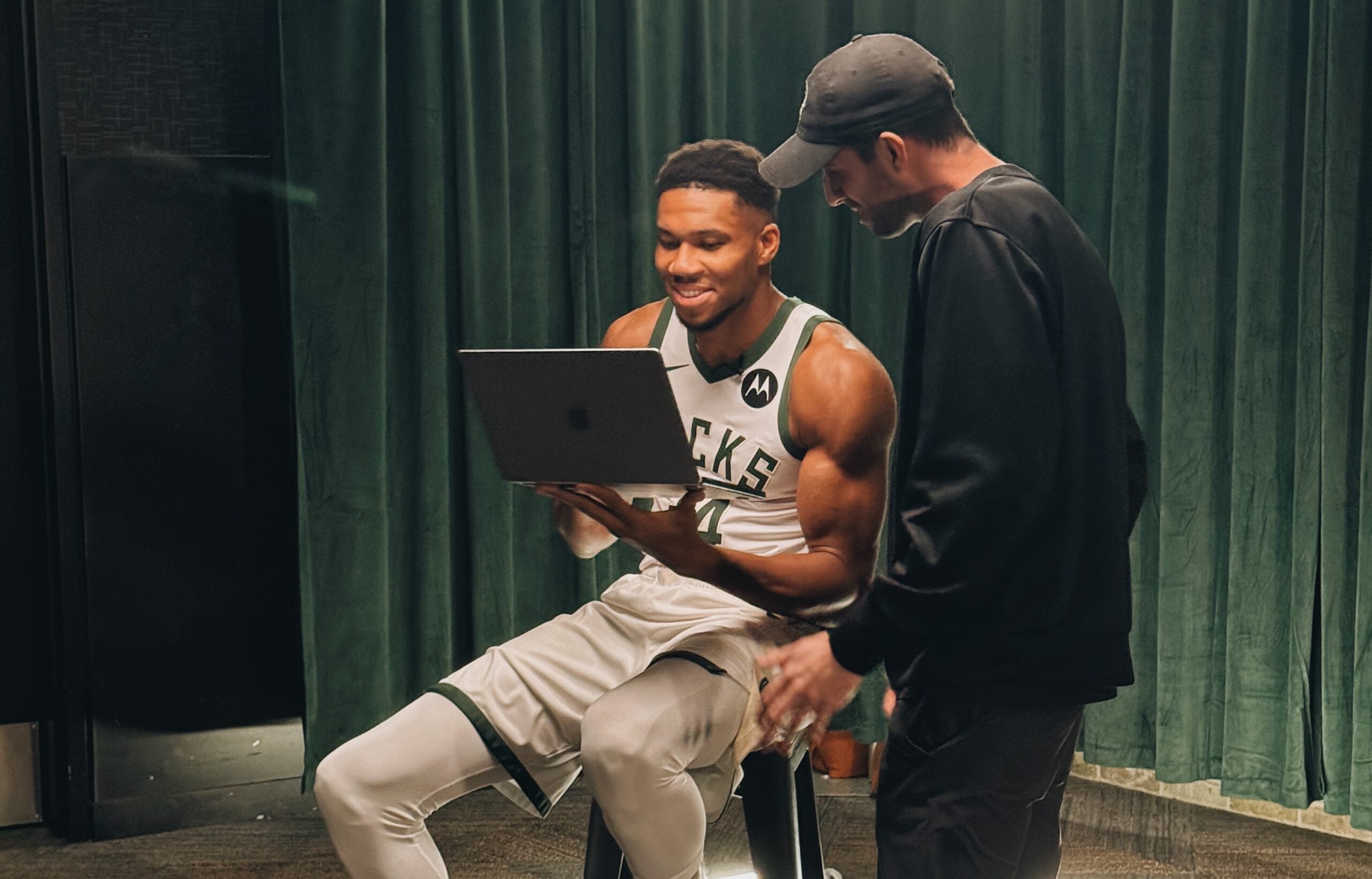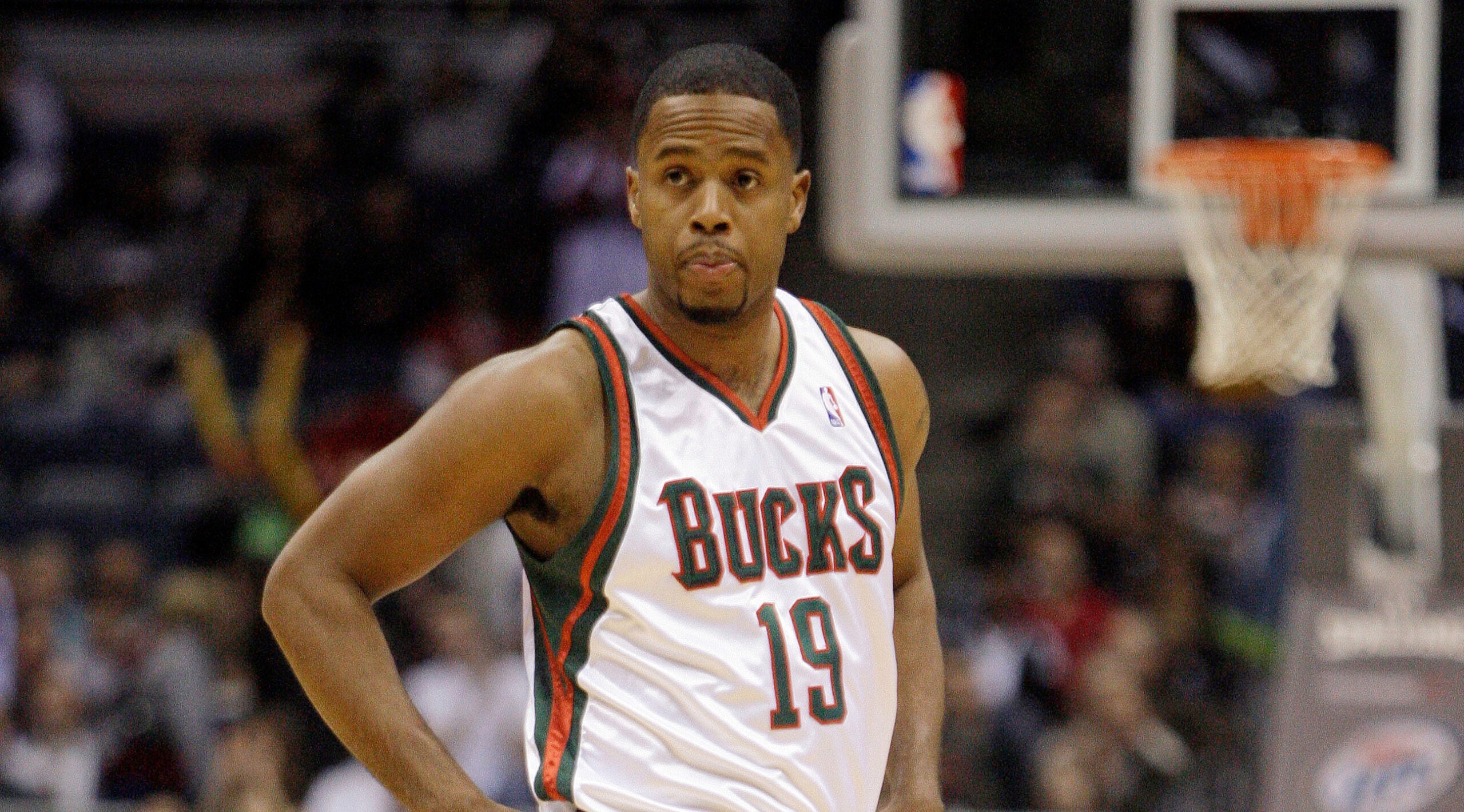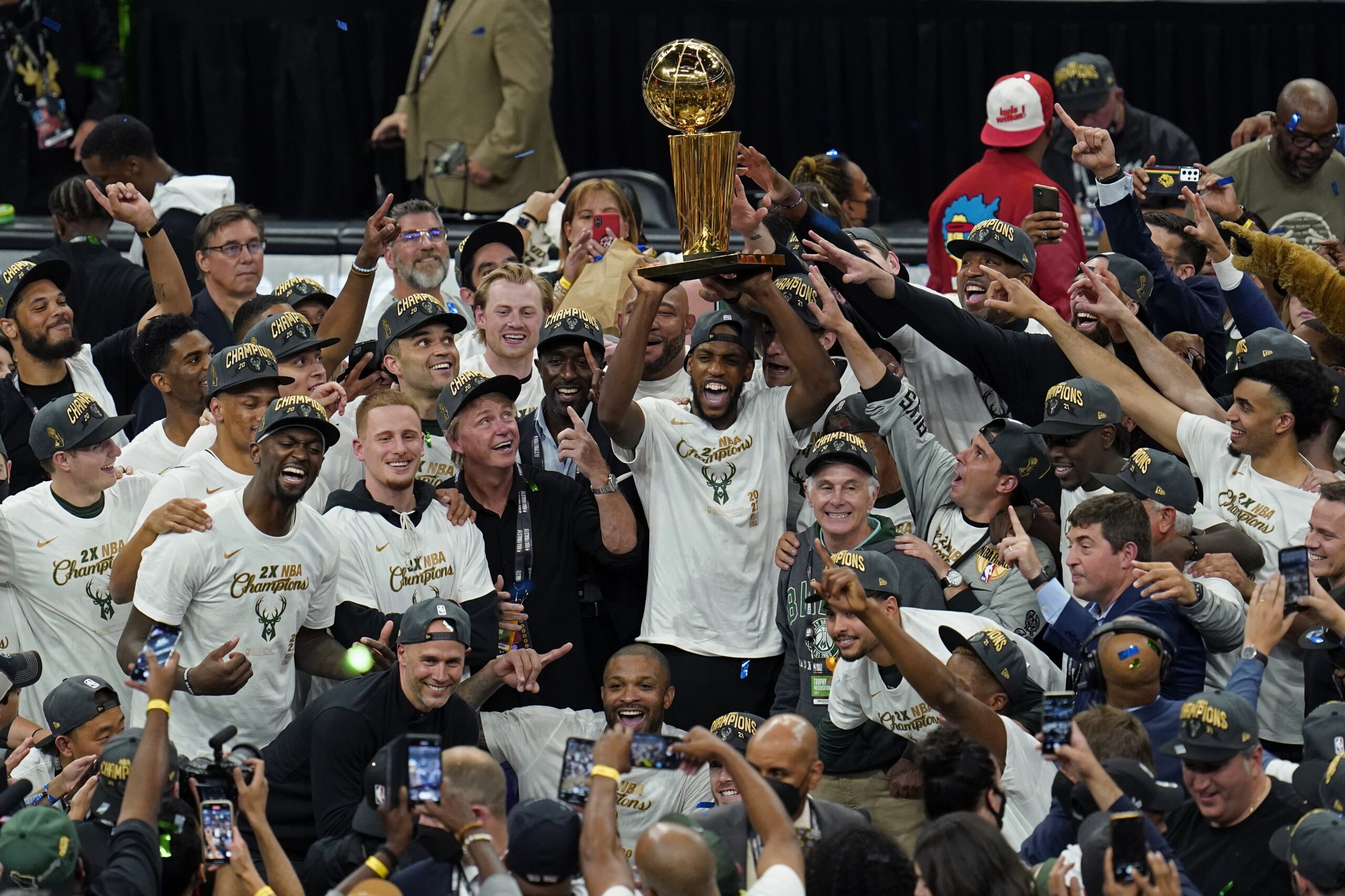Herb Kohl, a former Democratic U.S. senator from Wisconsin and former owner of the Milwaukee Bucks basketball team, has died. He was 88.
His death Wednesday was announced by Herb Kohl Philanthropies, which did not give a cause but said he died after a brief illness.
Kohl was a popular figure in Wisconsin, purchasing the Bucks to keep them from leaving town, and spending generously from his fortune on civic and educational causes throughout the state. He also used his money to fund his Senate races, allowing to him to portray himself as “nobody’s senator but yours.”
News with a little more humanity
WPR’s “Wisconsin Today” newsletter keeps you connected to the state you love without feeling overwhelmed. No paywall. No agenda. No corporate filter.
In the Senate, a body renowned for egos, Kohl was an unusual figure. He was quiet and not one to seek credit, yet effective on issues important to the state, especially dairy policy. He was one of the richest members of the Senate, and the Senate’s only professional sports team owner.
Kohl was born in Milwaukee, where he was a childhood friend of Bud Selig, who went on to become commissioner of the MLB. The two roomed together at the University of Wisconsin and remained friends in adulthood.
After receiving his bachelor’s degree from the University of Wisconsin in 1956, Kohl went on to earn a master’s degree in business administration from Harvard University in 1958, and he served in the Army Reserve from 1958-64. He helped grow the family-owned business, Kohl’s grocery and department stores, and served as company president in the 1970s. The corporation was sold in 1979.
Kohl also got into Wisconsin politics in the 1970s, serving as chair of the state Democratic Party from 1975 to 1977.
In 1985, Kohl bought the Bucks for $18 million.
“I am pleased, happy and delighted,” he said at a news conference. “The Milwaukee Bucks are in Milwaukee and they are going to stay in Milwaukee.”
He later remarked: “The opportunity I was given to purchase and to keep the team here in Milwaukee is one of the most unique and fortunate experiences I’ve ever enjoyed.”
The team was in the middle of its sixth straight winning season when Kohl bought it, and it went on to post winning records in the first six full seasons with Kohl as owner, before stumbling through most of the 1990s. The team improved in the late ’90s and early 2000s. In 2006, Kohl, owner of the small-market Bucks, was one of eight league owners to ask NBA commissioner David Stern to implement revenue sharing.
Kohl’s civic commitments extended well beyond keeping professional basketball in Wisconsin. He donated $25 million to the University of Wisconsin to help fund construction of the Kohl Center, home to the school’s basketball and hockey teams. It was the single largest private donation in university history.
“I was very happy to be in a position to help build a first-rate, state-of-the-art sports arena,” Kohl once said. “I think it cements the university’s reputation as one of the premier athletic programs in the Big Ten and the country.”
He also used his own money to fund the Herb Kohl Educational Foundation, which donates money for scholarships and fellowships to students, teachers and schools in Wisconsin.
In 1988, Kohl decided to run for the Senate, following the announcement that Sen. William Proxmire was retiring, and defeated then-state Sen. Susan Engeleiter, the Republican candidate. He won reelection in 1994, 2000 and 2006. His considerable fortune helped scare away the Republican Party from mounting a serious challenge in 2006.
Kohl never accepted a pay raise in the Senate; he drew a salary of $89,500 every year, the same pay he got when he entered the Senate in 1989, returning the rest to the Treasury Department.
In the Senate, Kohl tended to home state interests. He opposed the Northeast Dairy Compact, a program opposed by Midwestern dairy farmers, and helped prevent it from being renewed in Congress. Kohl was instrumental in coming up with a replacement program, the Milk Income Loss Contract, which paid dairy farmers cash when prices fell below a certain level; the program especially helped Wisconsin dairy farmers.
As the top Democrat on the Senate Appropriations agriculture subcommittee, which controls the budget of the Department of Agriculture, Kohl had a strong say on farm policy. He was also the top Democrat on the Senate Aging Committee and the Judiciary antitrust subcommittee. Kohl served as chair of all three panels when Democrats were in the majority.
Kohl didn’t mind doing things in the Senate without much credit. As Congress became more and more partisan, the diminutive Kohl almost seemed to be a throwback to another era.
“I am a person who does not believe in invective,” he once said. “I never go out and look to grab the mike or go in front of the TV camera. When I go to work everyday, I check my ego at the door.”
Kohl’s moderate temperament was matched by his voting record.
In 2001, he was one of just a dozen Democratic senators to vote for President George W. Bush’s tax cuts, but he voted against the president’s tax cuts in 2003. He also voted to authorize military force against Iraq in 2002.
Kohl, who never married, said that being single gave him time to balance the demands of life as a senator and owner. A sign on his Senate office desk said: “The Bucks Stop Here.”
Editor’s Note: Former AP reporter Frederic J. Frommer in Washington, D.C., was the primary writer of this obituary. AP reporter Todd Richmond reported from Madison, Wisconsin.
© Copyright 2025 by The Associated Press. All rights reserved. This material may not be published, broadcast, rewritten or redistributed.







